Education
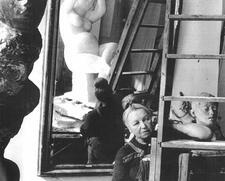
Antonietta Raphaël
Painting and sculptor Antonietta Raphaël rose to fame in the 1950s. Her paintings were seen for the first time in Rome in 1929; during World War II, she took up sculpting, and in the 1950s, she rose to prominence and exhibited her works worldwide.
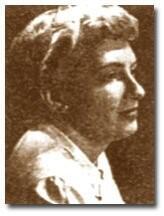
Lydia Rapoport
Lydia Rapoport was a social worker, professor, caseworker, and advocate of social change. Her contributions to crisis theory transformed how social workers and therapists handle crisis intervention.
Judith Raskin
An operatic soprano, Judith Raskin was one of the most outstanding musical artists of the twentieth century. Known for her performances and unique teaching methods, Raskin played more than 60 roles for prestigious opera companies across the United States, sang lieder and orchestral works, and taught at the Manhattan School of Music and the 92nd Street Y.
Elizabeth Brandeis Raushenbush
Following in the footsteps of her famous father, Supreme Court Justice Louis Brandeis, Elizabeth Brandeis Raushenbush became an expert on labor legislation in the United States and one of its strongest defenders.

Graduating Rabbis, the Class of 2017
Back Row: Leiah Moser, Birgit Elke Klein, Diane Sarah Tracht, Kami Knapp, Michael Ethan Pollack, Hannah Michelle Spiro, Rayna Ilyza Grossman
Front Row: Marley Anne Weiner, Jamie Sara Serber, Ariel Cherly L. Tarash, Julianne Denise Benioff, Wendy Georgette Kennebrae, Alexander R. Weissman, Mimi Polin Ferraro
Reconstructionist Judaism in the United States
Eva Gabriele Reichmann
Born in Silesia, Eva Gabriele Reichmann studied economics in Germany and, after fleeing the Nazis, in London. A prolific writer, especially after her retirement in 1959, Reichmann focused mainly on Judaism and the social history of German Jewry. She was awarded several medals for her contributions to democracy, freedom, and tolerance and died at the age of 101.
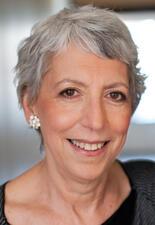
Gail Twersky Reimer
Gail Twersky Reimer is a teacher, writer, editor, passionate advocate for the humanities, and visionary pioneer of Jewish feminism. Reimer founded the Jewish Women’s Archive in 1995 to ensure that Jewish women’s stories would become integral parts of the historical record. Under her leadership, JWA pioneered the use of virtual technology in collecting, chronicling, and transmitting knowledge of Jewish women’s lives.
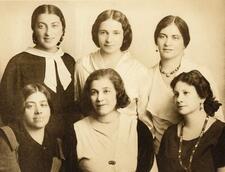
Sarah Reisen
Sarah Reisen was both a gifted Yiddish writer in her own right and a respected translator of great literature into Yiddish for children and adults. Recognized by contemporaries for her humane literary sensibility, she brought to Yiddish literature not only her own creative works but also her translations, which introduced readers of all ages to world literature.
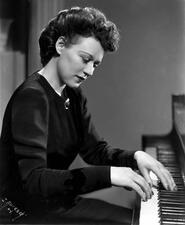
Nadia Reisenberg
Whether recording a Brahms sonata with clarinetist Benny Goodman, enjoying her three grandsons, or giving a master class in Jerusalem, pianist Nadia Reisenberg’s joy in relationships radiated from her. Reisenberg used her talents to connect with others, from her acclaimed performances with her sister to her years of training musicians in New York and Jerusalem.
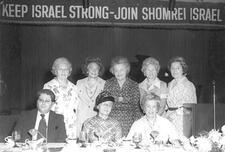
Religious Zionist Movements in Palestine
Religious Zionism, distinguished from the secular Zionists by its religious nature and from the ultra-Orthodox community by its Zionism, consisted of two major movements in the Yishuv: the Mizrachi and the Ha-Po’el ha-Mizrachi, a trade union. Women created their own organizations within these movements but distinguished themselves from the men through their support of women and their interests.
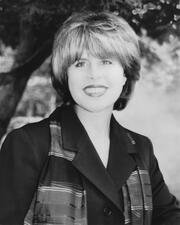
Brenda Brown Rever

Rezadeiras among Bene Anusim in Portugal
The rezadeiras, prayer-women, began to play an important role in crypto-Jewish practice after the late fifteenth-century Expulsions from Spain and then Portugal forced anyone who wanted to live as a Jew to do so in secret.
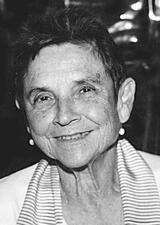
Adrienne Cecile Rich
Adrienne Rich was an influential poet, thinker, and political activist. In her essays and poems, Rich explored the intersections of the personal and the political, focusing in particular on questions of identity while drawing on her own experiences as a woman, a lesbian, and a Jew.
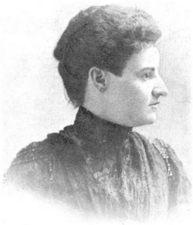
Julia Richman
A polarizing and important social reformer, Julia Richman sought to better manage the massive influx of immigrants in New York by Americanizing the new arrivals as quickly as possible, particularly through intense training in English. An educator who eventually became district superintendent of the Lower East Side schools in 1903, she created playgrounds, improved school lunches, and enforced health examinations for students.
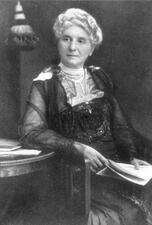
Elise Richter
Elise Richter could not pursue a university degree until she was in her 30s, when she became part of the first group of women to study at the University of Vienna. She received doctoral and post-doctoral degrees and subsequently taught classes on various Romance languages while publishing extensively, making important contributions to the field of historical and comparative linguistics.
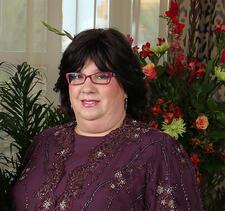
Bluma Rivkin
Nacha Rivkin
Orthodox Jewish education for women in America began with the work of Nacha Rivkin, a founder of Shulamith School for Girls, the first girls’ yeshiva in the United States. A courageous and proficient “doer,” Rivkin broke out of the mold of the passive, religious homemaker in her commitment to action. Through her music and artwork, she expanded the range of career possibilities for Orthodox women of her time.
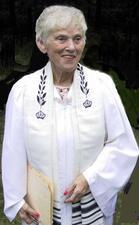
Betty Robbins
Betty Robbins is often heralded as the first female cantor – in fact, that honor goes to Julie Rosewald. However, Robbins was the first woman to be officially designated as cantor. The Board of Trustees at Temple Avodah in Oceanside, New York unanimously appointed Robbins as their cantor in 1955.
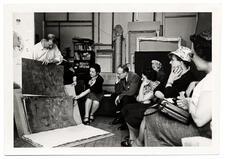
Colette Roberts
Colette Roberts devoted her life to increasing people’s understanding and appreciation of modern art. The success she earned as a gallery director, art critic, and educator influenced the art world of the mid-twentieth century in New York and Paris and throughout the world.

Sophia Moses Robison
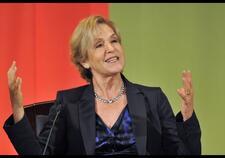
Judith Rodin
Romania, Women and Jewish Education
Since the adoption of a public school system in the mid-1800s in Romania, Jewish women in Romania women have had to fight anti-Semitism and sexism to pursue their education.
Hannah Toby Rose
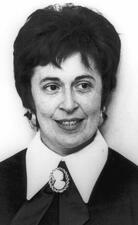
Gladys Rosen
Gladys Rosen created resources that changed how people approached Jewish history. As program specialist for the American Jewish Committee, she published Guidelines to Jewish History and Social Studies Instructional Materials, which offered summaries of Jewish history and resources for teaching Judaic studies. She went on to coedit a number of books on Jewish culture and history and was an interviewer on the radio program, Jewish Viewpoint.



